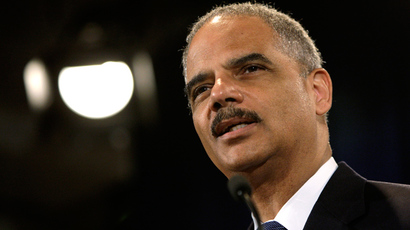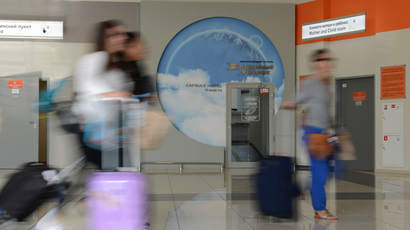McCain demands review of US-Russian relations after Snowden receives asylum

US Senator John McCain is furious about whistleblower Edward Snowden’s newly-acquired asylum, and is demanding that Washington re-examine its relations with Moscow and “strip away the illusions that many Americans have had about Russia.”
Following the news of Snowden’s one-year asylum status in Russia, McCain released an angry statement in which he condemns the “disgraceful” actions of President Vladimir Putin.
“Russia’s action today is a disgrace and a deliberate effort to embarrass the United States,” the senator said. “It is a slap in the face of all Americans. Now is the time to fundamentally rethink our relationship with Putin’s Russia. We need to deal with the Russia that is, not the Russia we might wish for.”
McCain urged Americans to take action against Russia and seek “repercussions” for granting the 30-year-old whistleblower temporary political asylum. He proceeded to describe the steps the US should take to penalize Moscow in ways unrelated to the Snowden case.
“The first thing we should do is significantly expand the Magnitsky Act list to hold accountable the many human violators who are still enjoying a culture of impunity in Russia,” he said. “
The Magnitsky Act imposes sanctions on numerous Russian state officials and civil servants who were allegedly involved in the imprisonment of Sergey Magnitsky, an accountant and auditor who worked for a British investment fund and died in prison while under investigation for tax fraud. The act prohibits the officials from entering the US or using the American banking system. Although the US has the right to bar the officials from entering the country, a top Russian diplomat believes that making the issue a political one is a sweeping and unwanted attempt to influence justice in a foreign country.
“We should push for the completion of all phases of our missile defense programs in Europe, and move expeditiously on another round of NATO expansion, including the Republic of Georgia,” McCain added, referring the missile defense system that Russian officials consider an obstacle to cooperation on nuclear arms reductions.
“We should challenge the political convictions and detentions of Russian dissidents such as Mikhail Khodorkovsky and Alexei Navalny,” he said. “And perhaps most importantly, we should speak out on behalf of the many people in Russia who increasingly are finding the courage to peacefully demand greater freedom, accountability, and rule of law in Russia.”
McCain has long been an outspoken critic of Russian President Vladimir Putin. In June, he accused Putin of holding a “disdain for democracy”, and said the current US-Russian relationship reminds him of the Cold War days. He also called the president “an old KGB colonel apparatchik that dreams of the days of the Russian Empire and continues to stick his thumb in our eye.”
But rather than focus his most recent outburst of anger on the
Snowden case, McCain is using news of the asylum as a platform to
begin talks about the alleged "misconceptions" Americans
have about Russia as a whole.
“Today’s action by Putin’s Russia should finally strip away the illusions that many Americans have had about Russia the past few years,” he said. “We have long needed to take a more realistic approach to our relations with Russia, and I hope today we finally start.”
Later in the day White House spokesman Jay Carney confirmed that the White House was "extremely disappointed" by Russia's decision to grant Edward Snowden asylum and was "evaluating the utility" of a Russian-American summit that was supposed to take place in Moscow this autumn. At the same time, Carney confirmed that President Obama didn’t want the Snowden issue to harm broader bilateral relations.














